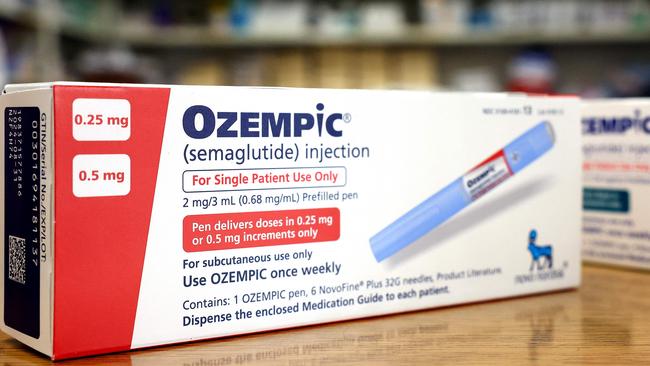What happens when you quit Ozempic? New study sheds light
Researchers have revealed the drastic changes to your body when you stop using weight-loss drugs like Ozempic or Wegovy.
A new study has shed light on the health risks faced by people who stop using weight-loss medications Ozempic or Wegovy.
Researchers from Northwestern University found when patients stopped using semaglutide, the active component in these medications, the majority regained around two-thirds of the weight they initially lost.
They also saw declines in health markers with increased blood pressure, cholesterol levels, and a higher risk of heart disease.
Semaglutide is sold under the brand name Ozempic when it’s prescribed for diabetes and Wegovy when it’s prescribed for weight loss.
These weight-loss drugs support weight loss by mimicking the hormone GLP-1, which helps regulate appetite and satiety.

The study found about 12 per cent of Americans have tried a GLP-1 receptor agonist, and 6 per cent are currently using this therapy.
However, around 85 per cent of new users stop these medications like Ozempic within two years, with 71 per cent quitting within the first year—either after reaching their target weight or due to high costs, which can be around $US1000 monthly ($A1550).
Northwestern Medicine cardiologist Dr Sadiya Khan said it was shocking to see no one talking about the rate of people who stopped using the medication.
“The staggeringly high discontinuation rates of GLP-1 RA should raise alarms for clinicians, policy makers, and public health experts,” Dr Khan said.
“It is essential that clinicians and health systems identify and implement strategies that couple equitable initiation strategies with personalized support for the persistence of GLP-1 RAs.
“This requires understanding the underlying reasons for [GLP-1 receptor agonists] discontinuation.”
Semaglutide has gained popularity for treating diabetes and obesity, with emerging studies also suggesting it can help lower blood pressure and reduce the risk of heart attack and stroke.
However, the latest study’s findings suggest while it’s unclear how stopping GLP-1 RAs affects long-term heart health, the drugs may increase cardiovascular risk.
In August, a study in JAMA Network Open examined the link between semaglutide use and suicidality, using a World Health Organisation database of adverse drug events from 140 countries.
Researchers found there was an elevated risk of suicidal thoughts among an already vulnerable group using semaglutide, compared to those who used other weight loss drugs.


The study authors identified 107 reports of patients experiencing suicidal thoughts while using semaglutide out of over 30,500 total cases.
In comparison, 162 similar reports were found among more than 52,000 patients using liraglutide, a related older diabetes medication.
Over the past couple of years, the skyrocketing popularity of the diabetic drugs has seen Australians admitted into emergency over their misuse.
According to Novo Nordisk, recent months have seen a marked increase in demand, particularly for the low-dose formulation, driven largely by a rise in “off-label” prescribing (use for conditions not officially approved by the TGA).
In response, the TGA consulted with clinical and patient groups which advises prescribers to:
- Avoid initiating new patients on Ozempic unless no alternatives are suitable or there is a strong clinical reason for its use.
- For patients currently prescribed Ozempic, consider alternative options, as consistent supply cannot be assured.
- For patients using Ozempic off-label, consider Wegovy, a new semaglutide brand specifically approved for chronic weight management.
- Prioritise Ozempic supplies for patients who are stabilised on it and lack other treatment options.
More Coverage
Originally published as What happens when you quit Ozempic? New study sheds light





